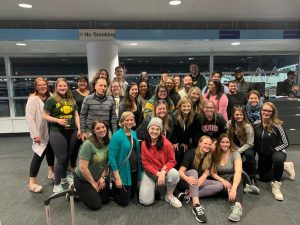An Anything But Normal Election
In the press release for today’s Marquette University Law School Poll, you’ll find the following sentence: “Given the uncertainty created by historically high levels of absentee voting and the unknown levels of election day turnout, these results should be viewed with more than the usual caution.”
Poll Director Charles Franklin is referring specifically to the polling numbers in the Democratic presidential primary. But his note of caution seems wise as we careen toward next Tuesday’s election.
Put another way, we don’t know what we don’t know about this spring election.
After reporting, writing, and talking about Wisconsin politics for 40 years, I thought I had seen it all. I was wrong.


